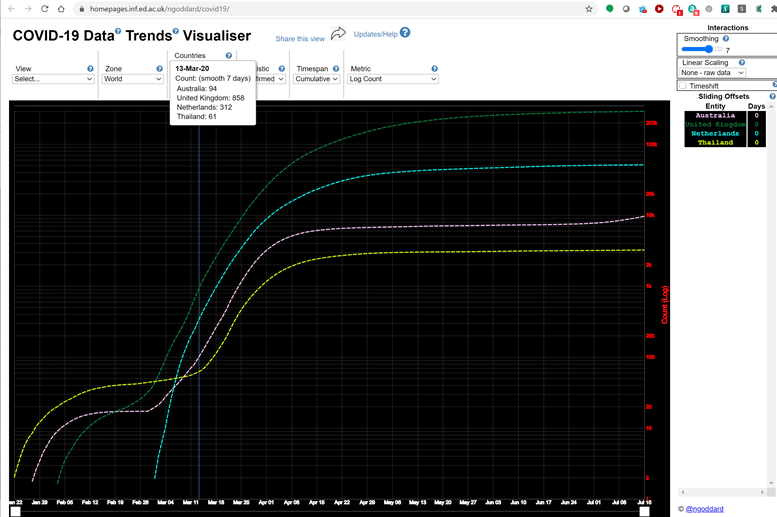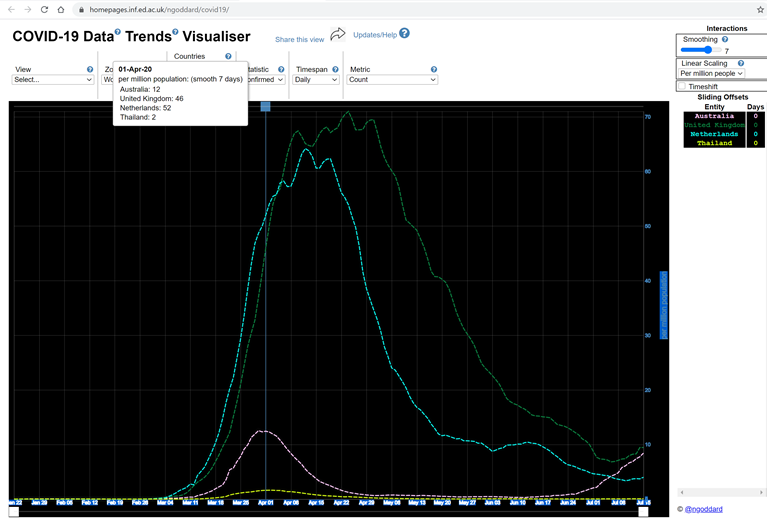Another two months has passed since my last update, and as with the last, much has changed in just two months. For those who want just a quick summary, the main news in this bulletin is that:
- We’re moving from Trang to Bangkok, now that the whole of Thailand is Covid-19 free (except for two quarantine breaches which the Thai authorities have reacted to very rapidly—see “PM urges return to ‘normality’ after scare“—there hasn’t been a locally transmitted case here for almost two months);
-
I’ve finished four major research pieces (attached here), and am about to start a set of new tasks;
- A review of Stephanie Kelton’s The Deficit Myth;
- The third and final volume of the cartoon book on money that Miguel Guerra and I are collaborating on; and
- A book for school students on what economics could be like, entitled Economics Matters Because…—this has been commissioned by Polity Press, who published my last book Can we avoid another financial crisis? (Patrons can access their electronic copy of this and my other books here).
Moving to Bangkok
It’s just four months since I made the decision to leave Amsterdam and move to Thailand, which was feasible because my partner is Thai. We arrived on March 19th, one day before the Thai authorities started to prevent non-residents entering Thailand, and before quarantine or even compulsory self-isolation was introduced. Now, the country is only allowing citizens (or those on official business) to come here, and everyone must undergo strict quarantine.
Those who, like me, were here as tourists, have had their visa waivers extended till July 31st (what happens after that date is still unknown). No local transmission case has occurred in almost two months now. So long as the authorities remain vigilant about border control, Thailand will be virus-free. I now plan to make this move to Thailand a permanent one.
Patron Neil Goddard’s Covid-19 visualisation tool makes it easy to reflect on this decision. I was in Sydney meeting with the development team for Minsky between February 18 and March 11; I arrived back in Amsterdam on March 13, and I made the decision to leave for Thailand on March 15. Across these dates, the infection data changed dramatically. Though Thailand had cases first (and was, for a time, the country with the 2nd most cases after China), the rate of growth of cases there plunged compared to both Europe and Australia.
When we arrived, a surge in cases occurred in all 4 countries that I had to option to live in (Australia, the UK, Netherlands, and Thailand). But only Thailand crushed the curve: Australia let a few cases spread through quarantine and it’s now combating the feared “second wave”.

A plot of new cases per day per million people emphasises just how well Thailand handled this pandemic versus wealthier and supposedly more savvy countries. The peak rate of infection in Thailand was 2 cases per million people; in the UK and Netherlands it was over 80. Australia’s rate, which was falling towards zero, is now rising again after lapses in quarantine and testing allowed a new outbreak to commence (I hope it gets on top of this trend in the next two weeks and joins the smattering of countries that have eliminated the virus, but I won’t hold my breath).

Now that we know Thailand is safe, we’ve decided to move to Bangkok, mainly for my partner’s benefit: I can work and keep mentally stimulated anywhere there’s a power point and an internet connection, but she needs the stimulus of city life which Trang lacks. We’ve located a place not far from her family home, and will move there at the end of July.
Productivity despite volatility
Though my travails are nothing compared to those facing people still living in countries where the virus is rampant, moving countries and setting up house here have made this a wild few months that I expected would trash my productivity. It did trash my fitness: I haven’t worked out in five months, and I’ve gained as many kilos. But I’ve managed to get several significant pieces of research done:
- An expose of the dreadful work done by Neoclassical climate change economists;
- Deriving Macroeconomics directly from Macroeconomic definitions;
- A paper on system dynamics and why the multiplier-accelerator model is useless; and
- A first model of a production system requiring both energy and matter inputs
All four papers are attached to this post. The first three have already found refereed-publication homes: the first on Nordhaus will appear in the journal Globalisations soon; the second will appear in the Review of Political Economy next year; the third is a chapter in a Springer book on system dynamics in economics. The fourth will evolve into a paper with Matheus Grasselli and Tim Garrett, once I get time to work on it again after the move to Bangkok.
Reviewing Kelton
I’ve been working on the above tasks for so long, and so intensely, that it feels like a bit of a let-down to finish them. I could have tried to dive into the next set of tasks, but I was feeling the pressure of so much work at once that I feel bit of a lull is in order. Since I won’t have time to start any major new project between now and our move to Bangkok at the end of next week, I’ve decided to use the time to review Stephanie Kelton’s The Deficit Myth instead. I’ll try to use Minsky models to illustrate my review, and I will probably record a quick video, using Minsky, on the fundamental points of MMT as well.
Keep Safe!
That’s it for now. Thanks again to my Patrons for their support, without which very little of the research detailed here would have been possible.